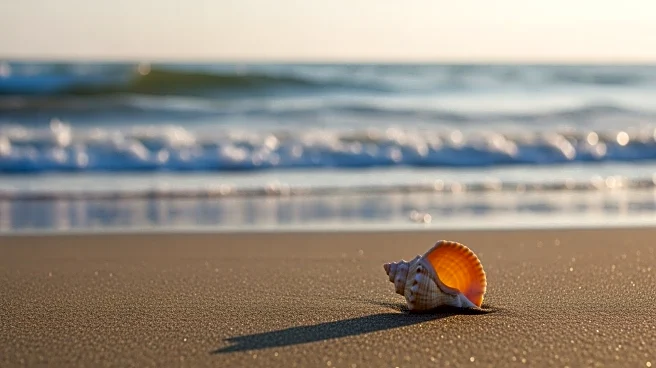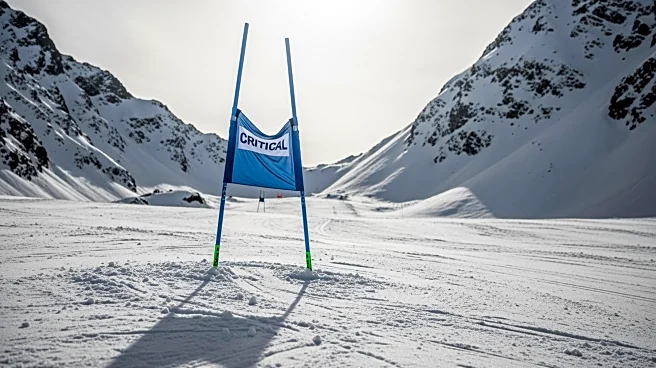What's Happening?
Australian authorities are investigating the death of a woman who died during a shore excursion from the expedition cruise ship Coral Adventurer. The incident occurred at Lizard Island, part of the Great
Barrier Reef. The woman was on a hike with a group of passengers when she stopped to rest and was left behind. It is believed she fell down a cliff. The Coral Adventurer departed the harbor around 1800-1900 hours, and the crew reported her missing at about 2100 hours. A search was launched, and her body was discovered by a helicopter aircrew the following morning. Coral Expeditions, the operator of the cruise, has confirmed the death and expressed condolences to the family.
Why It's Important?
This incident highlights the potential risks associated with shore excursions during cruise trips, raising questions about passenger safety and emergency response protocols. The delay in reporting the woman missing could have impacted the outcome, prompting scrutiny of the procedures followed by the cruise line. The investigation by the Australian Maritime Safety Authority (AMSA) may lead to changes in how cruise operators manage passenger safety during excursions, potentially affecting industry standards and regulations. The incident also underscores the importance of timely communication and coordination between cruise operators and local authorities in emergency situations.
What's Next?
The Australian Maritime Safety Authority is conducting an investigation and will interview crew members upon the Coral Adventurer's arrival in Darwin. The findings could lead to recommendations or changes in safety protocols for cruise operators. Coral Expeditions may also review and update its own safety measures and training for staff to prevent similar incidents in the future. The outcome of the investigation could influence regulatory changes in the cruise industry, particularly concerning passenger safety during shore excursions.
Beyond the Headlines
The incident raises broader questions about the responsibilities of cruise operators in ensuring passenger safety and the adequacy of current safety measures. It may prompt discussions on the ethical obligations of cruise lines to provide comprehensive safety briefings and ensure that all passengers are accounted for during excursions. Additionally, the case could lead to increased awareness and demand for improved safety standards in the cruise industry, potentially influencing consumer choices and expectations.









